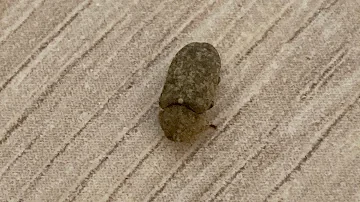How often are European elections held?
Table des matières
- How often are European elections held?
- Are EU members elected?
- How is President elected in EU?
- Who is the biggest party in the EU?
- Is EU and Euro same?
- Does the EU have an army?
- Who elects EU MPS?
- How many members does the EU have?
- Who holds EU presidency?
- Who controls the money for the EU?
- How is the European Parliament elected?
- How many MEPs are in the European Parliament 2019?
- What are the new political parties in Europe?
- Who is the current President of the European Commission?

How often are European elections held?
Elections to the European Parliament take place every five years by universal adult suffrage, and with more than 400 million people eligible to vote, they are considered the second largest democratic elections in the world after India's.
Are EU members elected?
When the European Parliament (then known as the Common Assembly of the ECSC) first met in 1952, its members were directly appointed by the governments of member states from among those already sitting in their own national parliaments. Since 1979, however, MEPs have been elected by direct universal suffrage.
How is President elected in EU?
President of the European Commission The president is nominated by the European Council and appointed by the European Parliament. It is customary that the European Council uses the result of the last European elections to guide their nomination.
Who is the biggest party in the EU?
- The European People's Party (EPP) is a European political party with Christian-democratic, conservative, and liberal-conservative member parties. ...
- The EPP has been the largest party in the European Parliament since 1999 and in the European Council since 2002.
Is EU and Euro same?
Although all EU countries are part of the Economic and Monetary Union (EMU), 19 of them have replaced their national currencies with the single currency – the euro. These EU countries form the euro area, also known as the eurozone.
Does the EU have an army?
The European army or EU army are terms for a hypothetical army of the European Union which would supersede the Common Security and Defence Policy and would go beyond the proposed European Defence Union. Currently, there is no such army, and defence is a matter for the member states.
Who elects EU MPS?
Since 1979, the Parliament has been directly elected every five years by the citizens of the European Union through universal suffrage.
How many members does the EU have?
27 countries The European Union ( EU ) is an economic and political union of 27 countries. It operates an internal (or single) market which allows free movement of goods, capital, services and people between member states.
Who holds EU presidency?
The presidency is currently, as of July 2021, held by Slovenia. Three successive presidencies are known as presidency trios. The current trio (2020-2021) is made up of Germany (July–December 2020), Portugal (January–June 2021) and Slovenia (July–December 2021).
Who controls the money for the EU?
The ECB is directly governed by European Union law. Its capital stock, worth €11 billion, is owned by all 27 central banks of the EU member states as shareholders....European Central Bank.
| Seat | |
|---|---|
| Headquarters | Ostend district, Frankfurt, Germany |
| Website | www.ecb.europa.eu |
How is the European Parliament elected?
- Elections to the European Parliament take place every five years by universal adult suffrage, and with more than 400 million people eligible to vote, it is considered the second largest democratic elections in the world. Until 2019, 751 MEPs were elected to the European Parliament, which has been directly elected since 1979.
How many MEPs are in the European Parliament 2019?
- EPP An election to the European Parliament was held between 23 and , the ninth parliamentary election since the first direct elections in 1979. A total of 751 Members of the European Parliament (MEPs) represent more than 512 million people from 28 member states.
What are the new political parties in Europe?
- Some of the new parties have already joined European parties, e.g. LMŠ of Slovenia is a member of ALDE. The biggest new party is La République En Marche! (LREM) of French President Emmanuel Macron that was formed in 2016 and won the French presidential and parliamentary elections of the following year.
Who is the current President of the European Commission?
- Therefore, following the victory of the European People's Party in the 2014 EP election, its lead candidate Jean-Claude Juncker was elected President of the European Commission . The two major parties are the centre-right European People's Party and the centre-left Party of European Socialists.













